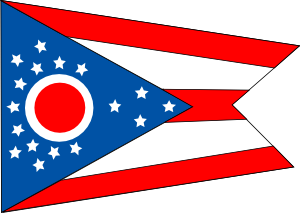August 25, 2014 •
TX Ethics Commission Issues Advisory Opinions and Proposed Rule Changes
On August 21, the Texas Ethics Commission issued two advisory opinions and a proposed rule amendment. Advisory Opinion 519 holds a state candidate is not prohibited from accepting an in-kind political contribution from an out-of-state political committee. The contribution to […]
 On August 21, the Texas Ethics Commission issued two advisory opinions and a proposed rule amendment.
On August 21, the Texas Ethics Commission issued two advisory opinions and a proposed rule amendment.
Advisory Opinion 519 holds a state candidate is not prohibited from accepting an in-kind political contribution from an out-of-state political committee. The contribution to a candidate is allowed if made from a permissible source and the candidate properly complies with the applicable disclosure requirements.
In Advisory Opinion 518, the commission upheld that a group is not a political committee if not accepting or intending to accept political contributions and not using or intending to use more than 20 percent of its funds and other resources to make political expenditures.
The Ethics Commission also voted to propose a rule change by defining “principal purpose” in relation to a group making political contributions and expenditures. While a group can have more than one principal purpose, the definition would create a threshold triggering the disclosure of political contributions and expenditures. The commission also proposed other rule changes. The proposed rules are currently open for comment.
Photo of the Texas Capitol Rotunda dome interior by Ed Uthman on Wikimedia Commons.
August 8, 2014 •
New Mexico Supreme Court to Hear Contribution Dispute
The state Supreme Court has issued a preliminary order and set a hearing on a campaign finance lawsuit filed by Democratic gubernatorial candidate Gary King. The preliminary order blocks Secretary of State Dianna Duran from forcing King to handover $10,900 […]
 The state Supreme Court has issued a preliminary order and set a hearing on a campaign finance lawsuit filed by Democratic gubernatorial candidate Gary King. The preliminary order blocks Secretary of State Dianna Duran from forcing King to handover $10,900 in contributions.
The state Supreme Court has issued a preliminary order and set a hearing on a campaign finance lawsuit filed by Democratic gubernatorial candidate Gary King. The preliminary order blocks Secretary of State Dianna Duran from forcing King to handover $10,900 in contributions.
At the center of the dispute is a state law limiting campaign contributions to $5,200 for a primary election and $5,200 for a general election. King’s post-primary report reflected contributions received after the date of the primary and in amounts more than the $5,200 general election limit, but at or under the $10,400 two-election limit.
Duran contends a candidate may not accept contributions attributable to the primary after the election has occurred when offered by donors who have given the maximum amount for the general election. The Office of the Secretary of State has previously advised candidates to provide clarification on the campaign report if a contribution should be applied to more than one election.
The hearing is scheduled for August 28, 2014.
June 16, 2014 •
Ohio Lawmakers to Introduce Campaign Finance Legislation
Ohio Reps. Nick Celebrezze and Ronald Gerberry announced plans last week to introduce legislation creating a campaign contribution blackout for the attorney general’s office. New legislation would prohibit contributions to the attorney general and to any party-endorsed candidates for the […]
 Ohio Reps. Nick Celebrezze and Ronald Gerberry announced plans last week to introduce legislation creating a campaign contribution blackout for the attorney general’s office. New legislation would prohibit contributions to the attorney general and to any party-endorsed candidates for the office while the office is reviewing bids on contract work.
Ohio Reps. Nick Celebrezze and Ronald Gerberry announced plans last week to introduce legislation creating a campaign contribution blackout for the attorney general’s office. New legislation would prohibit contributions to the attorney general and to any party-endorsed candidates for the office while the office is reviewing bids on contract work.
Celebrezze believes a blackout period will help eliminate the appearance of impropriety. Attorney General Mike DeWine, however, claims enforcement of the blackout periods makes the process inherently more political. Moreover, he said contributions have not influenced his decision to award contract work.
New York County Supreme Court to hear case involving CBS’ show Brooklyn D.A.
 First there was Arthur Branch. Then came Jack McCoy. Now it’s Charles Hynes’ turn to star as a New York City district attorney on the small screen. Only Hynes is not an actor or a character, he is an actual district attorney who is in the middle of a fierce campaign to keep his job. And his main opponent for the Democratic nomination is crying foul.
First there was Arthur Branch. Then came Jack McCoy. Now it’s Charles Hynes’ turn to star as a New York City district attorney on the small screen. Only Hynes is not an actor or a character, he is an actual district attorney who is in the middle of a fierce campaign to keep his job. And his main opponent for the Democratic nomination is crying foul.
Abe George is suing Hynes, his committee, and CBS in New York over what he calls illegal campaign contributions. CBS is producing and has aired the first episode in a six-part reality series titled Brooklyn D.A. This reality series will follow Hynes and the rest of the Kings County District Attorney’s Office as they do their job for the cameras.
George is not pleased with the free publicity Hynes will be receiving since they are in a heated campaign to garner the Democratic nomination for the position. He believes the air time should be considered a campaign contribution, and with the series’ value over the $5,000 limit, he believes it is an illegal contribution.
Hynes has been the district attorney in the county since 1989, and George believes he is willing to do anything to stay in power. “[He] has been the Brooklyn district attorney since 1989 and has operated under a mounting public perception that he will do anything, including misusing his broad prosecutorial powers, to achieve political gain for himself.”
CBS disagrees with George’s assertion and refuses to stop airing the show.
Sonya McNair, spokeswoman for CBS News, said, “We are surprised that this candidate would not know about the First Amendment. This is obviously a publicity push by a politician.”
For what it’s worth, Hynes believes this show will guarantee a victory for his campaign. He said, “If they couldn’t take me out then, boy, you’ll never be able to take me out now.”
The next episode of Brooklyn D.A. airs Tuesday, May 28, at 10:00 p.m. on CBS.
Photo of Charles Hynes courtesy of the Metropolitan Transportation Authority of the State of New York on Wikipedia.
House Bill 142 and House Bill 143 become new ethics law
 Governor Nathan Deal signed two pieces of ethics legislation aimed at increasing public confidence in state government on May 6, 2013. House Bill 142 restores rulemaking powers to the Georgia Government Transparency and Campaign Finance Commission, clarifies and modifies classification as a lobbyist, and sets a gift limit of $75 per lobbyist gift.
Governor Nathan Deal signed two pieces of ethics legislation aimed at increasing public confidence in state government on May 6, 2013. House Bill 142 restores rulemaking powers to the Georgia Government Transparency and Campaign Finance Commission, clarifies and modifies classification as a lobbyist, and sets a gift limit of $75 per lobbyist gift.
House Bill 143 requires more campaign transparency for local races and allows for public notice of any campaign contributions given to members of the General Assembly leading up to the start of the legislative session. The bills become effective January 1, 2014.
Pledging in return for campaign contributions would violate the Legislative Ethics Act
 The Alaska Legislative Ethics Committee has issued an advisory opinion allowing incumbent legislators to sign pre-election pledges during re-election campaigns.
The Alaska Legislative Ethics Committee has issued an advisory opinion allowing incumbent legislators to sign pre-election pledges during re-election campaigns.
So long as the pledge is in exchange only for an endorsement or a promise of an endorsement it does not violate the Legislative Ethics Act. However, the committee also determined the signing of pre-election pledges in a quid pro quo exchange for a campaign contribution or a promise of a campaign contribution would violate the act.
Special interest groups often request candidates to take positions on certain topics by signing a pledge.
State and Federal Communications, Inc. provides research and consulting services for government relations professionals on lobbying laws, procurement lobbying laws, political contribution laws in the United States and Canada. Learn more by visiting stateandfed.com.


